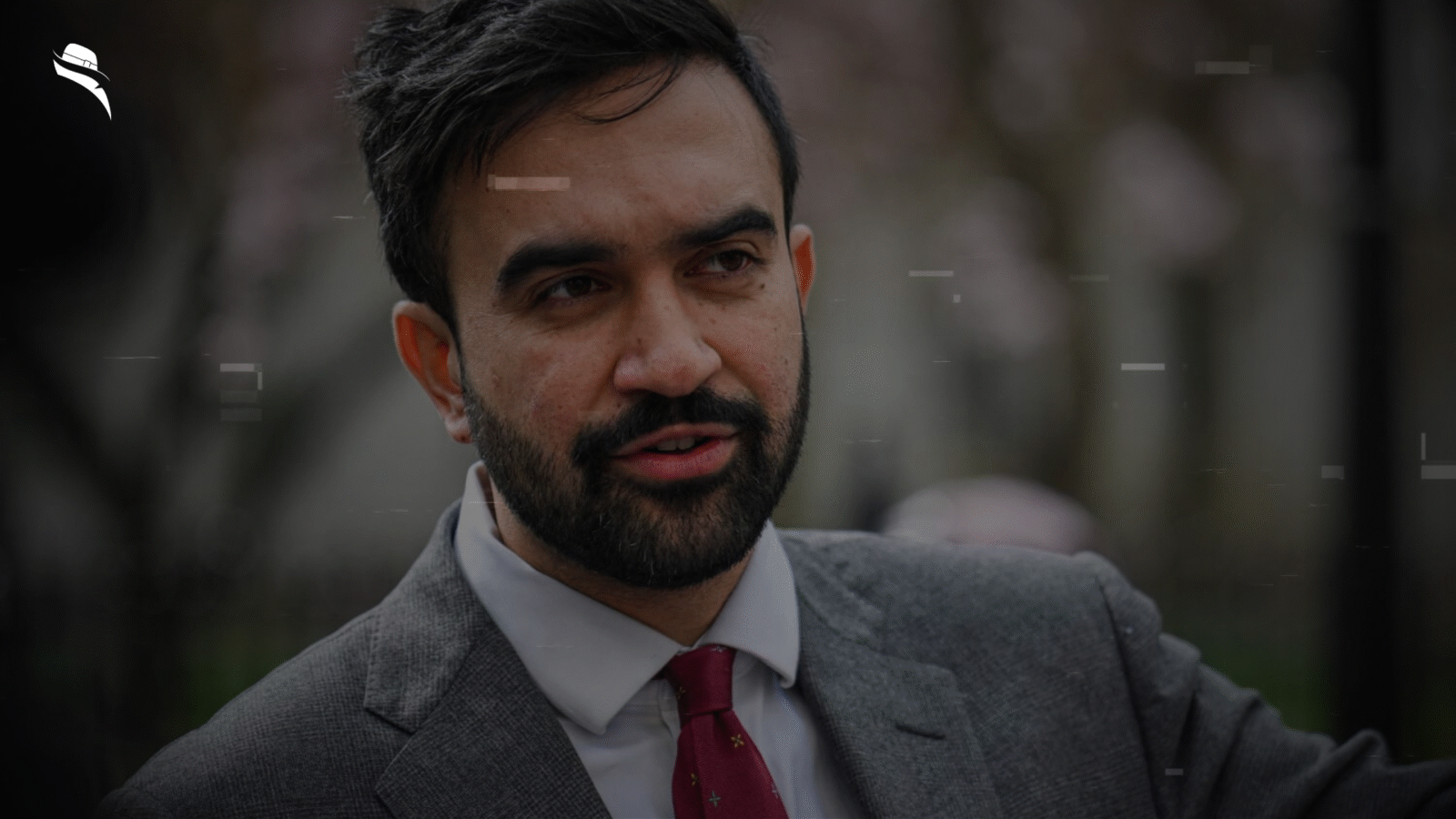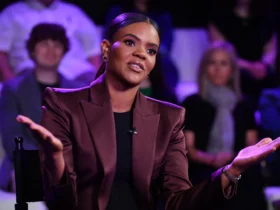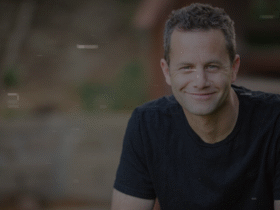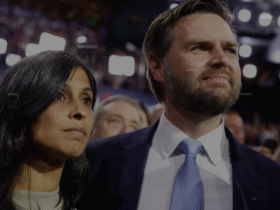Zohran Mamdani stance on Israel has become a defining element of his remarkable political ascent, taking him from polling at just 1% in February to securing the Democratic nomination for New York City mayor. After defeating former Governor Andrew Cuomo in a stunning upset, Mamdani now stands poised to become the first Muslim mayor of America’s largest city.
Throughout his campaign, Mamdani has been outspoken about the Israel-Palestine conflict, particularly criticizing Israel’s military operations in Gaza that have resulted in over 56,000 Palestinian deaths. Despite these controversial positions, he has gained significant support, with 56% of Democratic primary voters choosing him last month. At the same time, Mamdani has faced serious political controversies, including accusations of antisemitism from opponents. His comments regarding Netanyahu’s arrest warrant from the International Criminal Court for alleged war crimes have further intensified debate in a city that houses the largest Jewish population outside Israel, approximately 1.2 million people.
Zohran Mamdani’s rise and campaign background
The political ascent of Zohran Mamdani represents one of the most remarkable campaign stories in recent New York politics. His journey through the Democratic primaries showcases how progressive candidates can overcome significant odds through strategic organizing and clear messaging.
From 1% polling to primary victory
Initially dismissed by political analysts, Mamdani’s campaign began with dismal polling numbers. Few expected the insurgent candidate to gain traction against established political figures in the race. Nevertheless, his consistent messaging on progressive issues, especially his uncompromising stance on the Israel-Palestine conflict, resonated with key voter demographics. His campaign gained momentum through March and April, with polling numbers steadily climbing as voters became more familiar with his platform.
The primary election results stunned political observers when Mamdani secured the Democratic nomination. This victory represented not just a personal triumph but signaled a significant shift in New York City’s political landscape, where candidates with clear progressive positions on international issues could successfully compete against more moderate opponents.
Grassroots organizing and digital outreach
Mamdani’s campaign success stemmed largely from an effective ground game. Rather than relying on traditional political structures, his team built a network of dedicated volunteers who conducted:
- Door-to-door canvassing in historically overlooked neighborhoods
- Phone banking operations that emphasized personal connections
- Community-based events that addressed local concerns while connecting them to broader issues
Simultaneously, his digital strategy amplified his message beyond physical campaign boundaries. The campaign effectively utilized social media platforms, creating content that explained complex international issues in clear and accessible terms. Additionally, his team employed microtargeting strategies to reach voters specifically concerned with his stance on Israel and other progressive priorities.
Support from progressive groups and DSA
Undoubtedly, a crucial factor in Mamdani’s rise was the backing he received from organized progressive groups. Foremost among these was the Democratic Socialists of America (DSA), which provided volunteers, funding, and organizational expertise. Furthermore, his campaign received endorsements from several progressive elected officials who shared his views on international policy.
These supporting organizations helped transform Mamdani from an unlikely candidate into a serious contender by providing infrastructure and legitimacy. Moreover, their involvement expanded his reach into communities that traditionally supported established candidates, creating a broad coalition that was sufficient to secure victory.
Zohran Mamdani stance on Israel and Palestine
Throughout his political career, Zohran Mamdani has established himself as an outspoken critic of Israeli policies, positioning this issue as central to his political identity. His views on the Israel-Palestine conflict have both galvanized supporters and generated significant controversy.
Use of terms like ‘genocide’ and ‘apartheid’
Mamdani has consistently used strong terminology when discussing Israel’s actions in the Palestinian territories. He has referred to Israel’s military operations in Gaza as “genocide” and described Israel’s governance system as “apartheid.” These characterizations have resonated with his progressive base yet sparked intense debate about appropriate political discourse regarding the conflict.
Support for BDS and criticism of Israeli policies
Beyond rhetoric, Mamdani has openly endorsed the Boycott, Divestment, and Sanctions (BDS) movement against Israel. He advocates for economic pressure as a legitimate means to influence Israeli policy. His criticism extends to Israel’s settlement expansion, military operations, and what he describes as systematic discrimination against Palestinians. Consequently, his stance has drawn sharp criticism from pro-Israel groups who view BDS as antisemitic.
Defense of the ‘globalize the intifada’ slogan
Perhaps most controversially, Mamdani has defended the slogan “globalize the intifada.” Although many critics view this phrase as advocating violence, Mamdani has framed it as supporting legitimate resistance against oppression. This position has arguably been the most polarizing aspect of his Israel stance, with opponents seeing it as crossing a dangerous line in political discourse.
Legislation targeting Israeli-linked charities
In policy terms, Mamdani has proposed legislative measures to restrict tax-exempt status for charities supporting Israeli settlements. He argues that such organizations contribute to human rights violations and undermine peace prospects. Altogether, his policy positions on Israel represent one of the most progressive stances among mainstream American politicians, reflecting broader shifts within parts of the Democratic Party.
The Netanyahu arrest controversy
One of the most contentious aspects of Mamdani’s campaign emerged from his bold declaration regarding Israeli Prime Minister Benjamin Netanyahu.
Mamdani’s statement on arresting Netanyahu
In December 2023, Mamdani explicitly stated that “as mayor, New York City would arrest Benjamin Netanyahu” if he visited the city. He justified this position by asserting that New York’s values should align with international law. Even when speaking at a UJA-Federation town hall, Mamdani stood firm on this position, comparing it to how he would handle Vladimir Putin.
International Criminal Court warrant context
Mamdani’s statement references the International Criminal Court’s arrest warrant issued against Netanyahu in November 2024. The ICC charged Netanyahu with alleged war crimes, including “starvation as a method of warfare” and crimes against humanity, including “murder, persecution, and other inhumane acts”. Notably, the ICC stated these crimes occurred “from at least 8 October 2023 until at least 20 May 2024”.
Reactions from Netanyahu and political figures
During a White House visit in July 2025, Netanyahu dismissed Mamdani’s threat as “silly” and “not serious”. He added, “I’m going to come there with President Trump and we’ll see”. Subsequently, Trump interjected with “I’ll get him out”. Trump also characterized Mamdani as “a communist, not a socialist” who “said some really bad things about Jewish people”.
Political backlash and support across communities
Mamdani’s candidacy has ignited fierce debate across New York’s diverse communities, becoming a lightning rod for broader tensions about Israel-Palestine discourse in American politics.
Accusations of antisemitism
Prominent Jewish organizations, including the American Jewish Committee, have united against Mamdani, arguing his rhetoric breeds antisemitic violence. Rep. Dan Goldman stated that if Mamdani wouldn’t condemn the phrase “globalize the intifada,” he was “unfit to lead a city with 1.3 million Jews“. Similarly, Governor Josh Shapiro accused Mamdani of failing to condemn “blatantly antisemitic” rhetoric from supporters, hence positioning this as a moral clarity issue rather than merely political disagreement.
Support from progressive Jewish leaders
Nonetheless, Mamdani has garnered significant Jewish support. NYC Comptroller Brad Lander cross-endorsed him, and Jews For Racial & Economic Justice backed his campaign. A group of NYC rabbis publicly defended him, writing that they “reject the bad-faith attacks on Mamdani”. Indeed, Mamdani has emphasized that his campaign was largely “run by Jewish New Yorkers” and proposed increasing hate crime prevention funding by 800%.
Impact on Democratic Party discourse
This controversy has created significant fractures within Democratic ranks. Nearly 7 in 10 Democrats now express unfavorable views of Israel, compared to 37% of Republicans, revealing shifting party dynamics. Many Democratic leaders remain reluctant to unite behind Mamdani, though progressive supporters hope the party will rally behind their nominee. Rep. Richie Torres praised aspects of Mamdani’s campaign yet declined to endorse him.
Media framing and super PAC involvement
Media coverage has overwhelmingly focused on controversy rather than policy:
- 59% of national broadcast segments centered on Israel or antisemitism
- Only 1% mentioned Islamophobia despite its prevalence
Meanwhile, a pro-Cuomo super PAC produced campaign materials with Mamdani’s beard artificially darkened, which he condemned as “blatant Islamophobia”. Following his victory, Muslim advocacy groups recorded 127 hate-related threats linked to Mamdani.
Curious about where other U.S. representatives stand on the Israel-Palestine conflict? Explore more profiles here.
Final Thoughts
Mamdani’s historic victory represents more than just a personal triumph. Yet experts caution against viewing this result as signaling a broad national trend favoring progressives. In congressional primaries nationwide, mainstream Democrats won 67% of contests compared to progressives’ 30%, with Democratic Socialists constituting just 1% of primary winners.
Even so, Mamdani’s success demonstrates how progressive candidates can connect with broader electorates through focused economic messaging. His emphasis on rent freezes, free buses, and childcare resonated because these proposals were both “understandable and popular”.
Throughout the campaign, Mamdani positioned himself as “a model for the Democratic party – a party where we fight for working people with no apology”. His victory has accordingly rattled the Democratic establishment, triggering concerns about alienating voters needed for the 2026 and 2028 elections.
Regarding his stance on Israel, some see Mamdani’s victory as an inflection point showing the electoral viability of pro-Palestinian positions. Others view it as evidence that “anti-Israel positions now carry electoral value rather than political cost”.
Ultimately, whether Democratic leadership embraces or distances itself from Mamdani before November may provide crucial insights into the party’s future direction. As one observer noted, his campaign succeeded by making “democratic socialism sound like common sense”.
FAQs
1. Who is Zohran Mamdani, and why is he in the spotlight?
Zohran Mamdani is a New York City politician and Democratic Socialist who recently won the Democratic nomination for NYC mayor after a historic upset over Andrew Cuomo. His outspoken views on the Israel-Palestine conflict and progressive policies have made him a polarizing national figure.
2. What is Zohran Mamdani stance on Israel and Palestine?
Mamdani is a vocal critic of Israeli policies, referring to its actions in Gaza as “genocide” and describing its government system as “apartheid.” He supports the Boycott, Divestment, and Sanctions (BDS) movement and has proposed revoking tax exemptions for charities funding Israeli settlements.
3. Did Zohran Mamdani say he would arrest Benjamin Netanyahu?
Yes. In December 2023, Mamdani stated that if Israeli Prime Minister Benjamin Netanyahu visited NYC, he would have him arrested based on the International Criminal Court’s arrest warrant for alleged war crimes in Gaza.
4. What is the controversy surrounding the phrase “globalize the intifada”?
Mamdani has defended the use of the phrase, arguing it supports legitimate resistance against oppression. Critics, however, see it as inflammatory and interpret it as promoting violence.
5. Is Zohran Mamdani antisemitic?
Mamdani denies any antisemitic intent, and he has significant Jewish support from groups like Jews for Racial & Economic Justice and NYC rabbis. However, prominent Jewish organizations and politicians have condemned his rhetoric, saying it fuels antisemitism.
6. What impact has Mamdani’s stance had on the Democratic Party?
His victory reflects growing progressive influence within the Democratic Party and shifting views on Israel, especially among younger voters. However, many centrist Democrats remain wary of fully embracing his positions.
7. What were the results of the Democratic primary?
Mamdani won with 56% of the vote, overcoming low early polling and opposition from powerful political figures. His victory is seen as a major shift in New York City’s political landscape.
8. What role did the Muslim and Jewish communities play in Mamdani’s campaign?
Mamdani received support from many progressive Jewish leaders and Muslim advocacy groups. His campaign emphasized interfaith unity, though it also faced Islamophobic attacks, including altered images and hate threats.
9. How does Mamdani respond to accusations of extremism?
He has consistently framed his rhetoric as rooted in human rights and international law. Mamdani says criticism of Israel’s government is not equivalent to hatred of Jewish people.
10. What does Mamdani’s success mean for future U.S. politics?
It signals that pro-Palestinian and progressive positions can be electorally viable, especially in urban, diverse districts. It also shows how grassroots organizing can overcome establishment resistance.







1 Comment